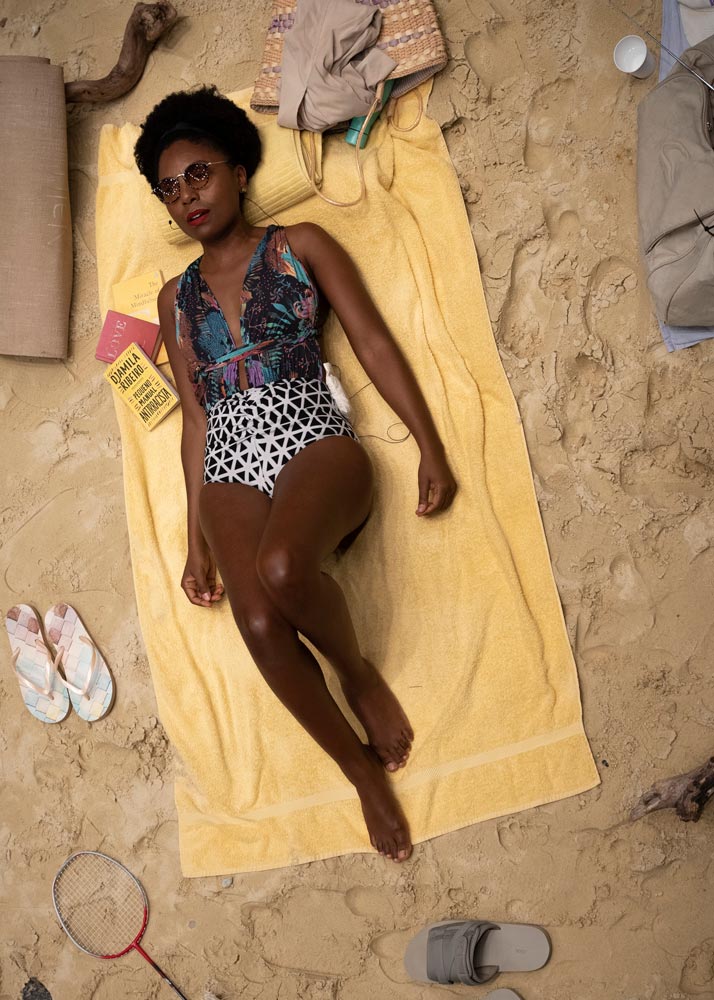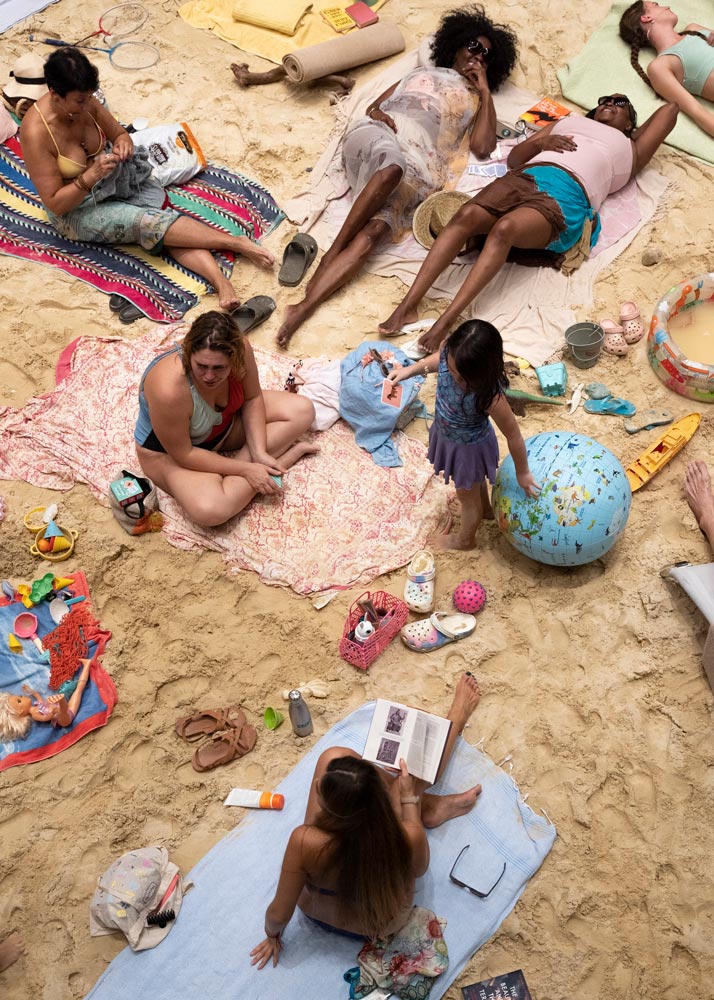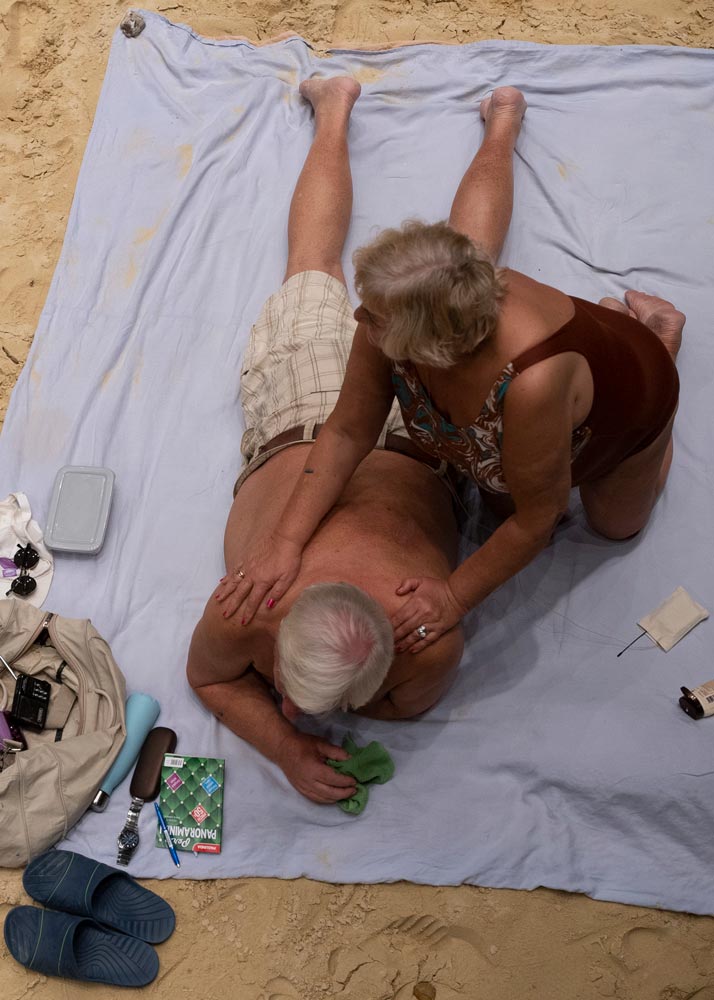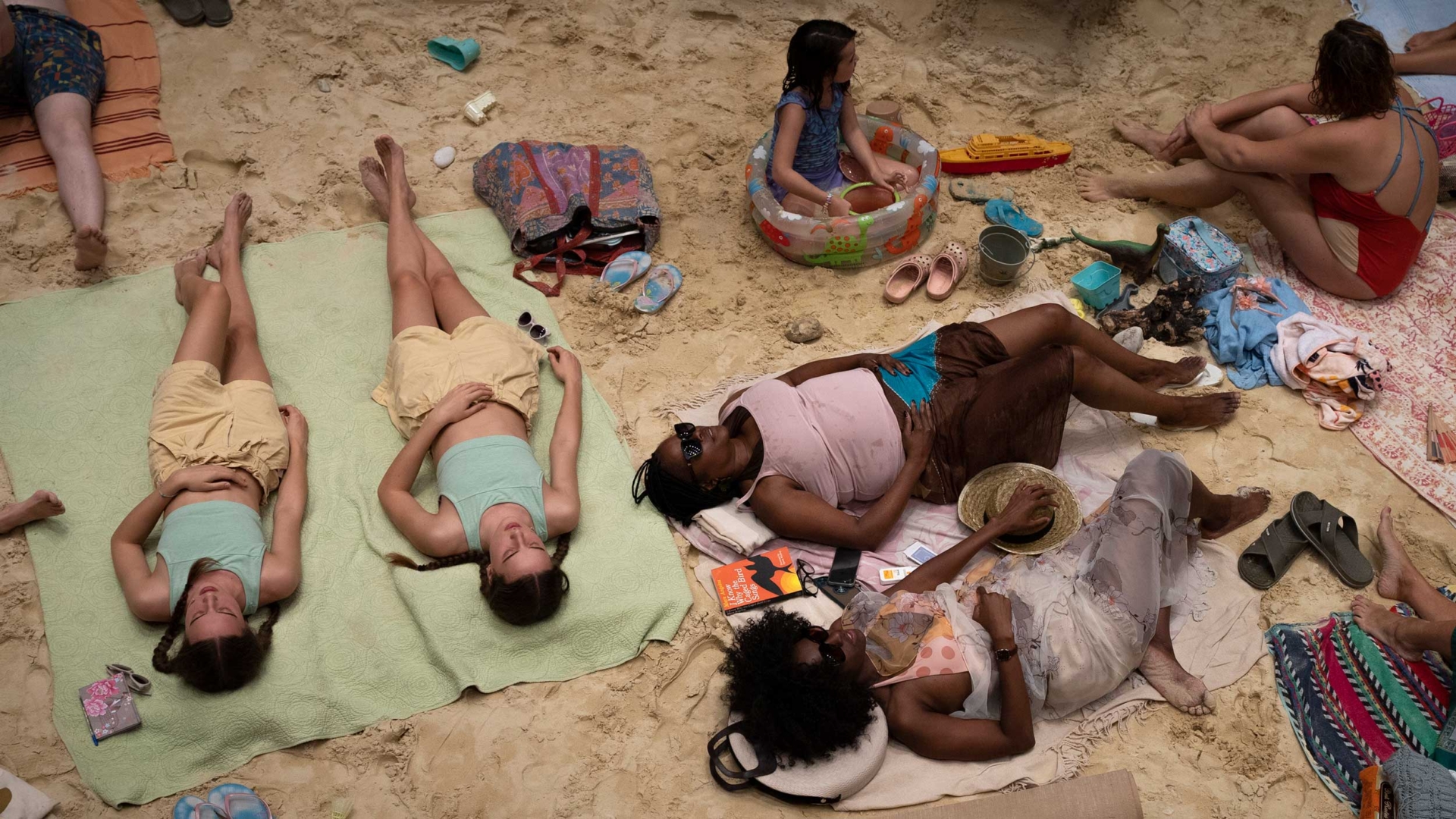‘Sun & Sea’ at Alkantara Festival
On a beach set up on-stage at the Emílio Rui Vilar Auditorium at Culturgest, we see what could be described as a normal summer holiday scene, with a series of characters taking a break from their daily routines. Watching from above, on scaffolds, the audience observes children playing and groups of holidaymakers chatting, playing cards or reading.
In the background, we hear the sounds of waves breaking, planes flying over and typical summer business activities. Sweaty, relaxed bodies daubed in sunscreen coexist, sharing their frustration with their way of life or describing what they see around them.
At first sight, the characters appear to be sharing simple concerns, wishes for the future or memories of the past. Solos and duets are interspersed by the chorus, which echoes what has just been said: there are repeated warnings such as ‘use sunscreen’ or ‘do not leave children unattended’ and holidaymakers tell stories of volcanoes erupting or complain about the seaweed gradually covering their bathing suits.
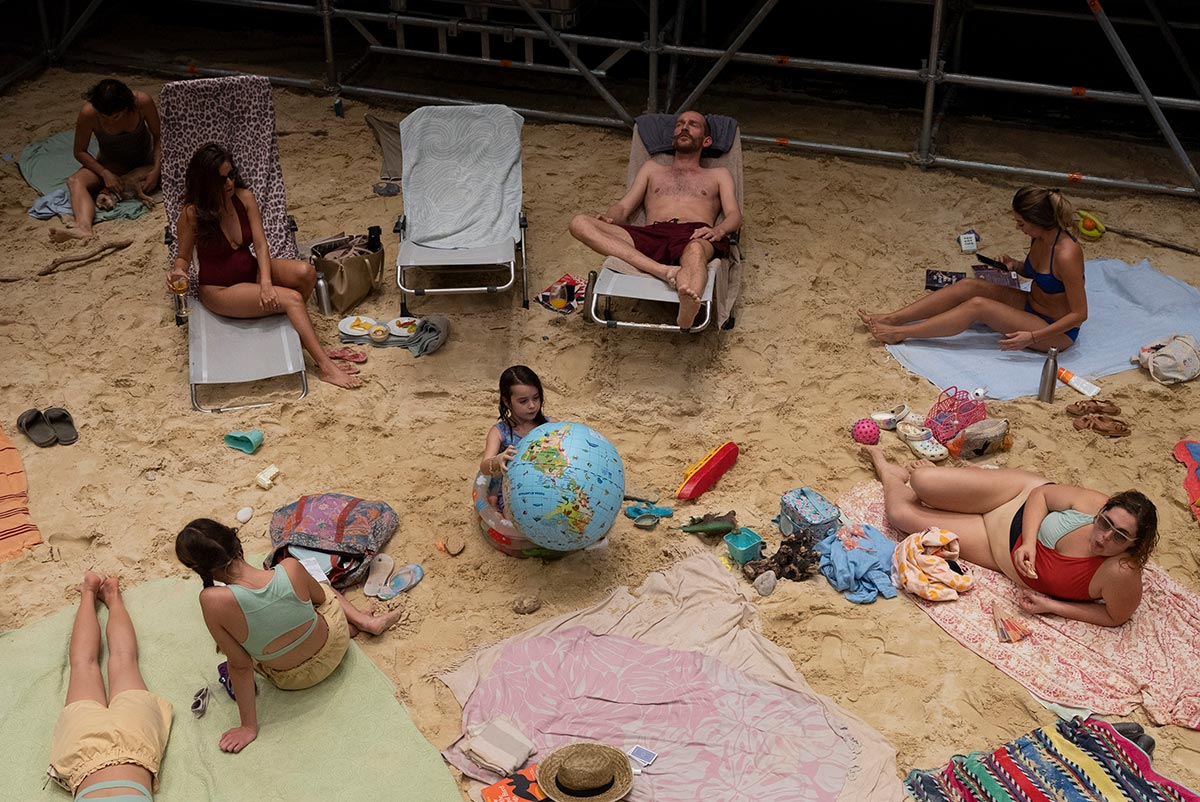
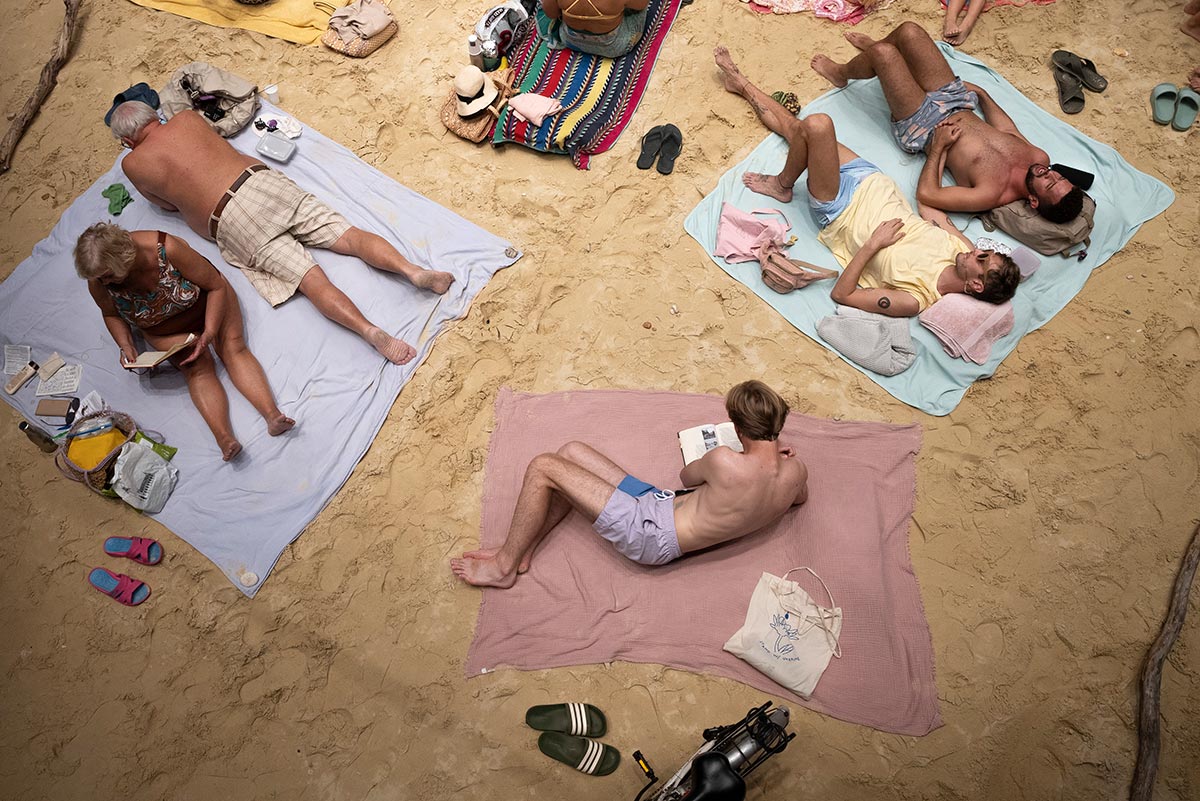
The setting and presentation of this opera-performance offer the audience a truly immersive experience. As it unfolds, the audience begins to grasp the intensity of the causes and consequences of what is being shared: climate change. Despite being tackled indirectly here, this urgent current issue leads to tensions between the characters.
The opera-performance Sun & Sea was created by Lithuanian artists Rugilė Barzdžiukaitė, a filmmaker and theatre director, Vaiva Grainytė, a poet and playwright, and Lina Lapelytė, a musician and composer. Curated by Lucia Pietroiusti, this is the second collaboration between the three artists, who explore the interconnections between their professional fields.
It was presented for the first time in 2017 at the National Gallery in Vilnius before being selected in 2019 to represent Lithuania at the 58th Venice Biennale, where it was awarded the Golden Lion. Since then, it has been presented in several different countries, continuing during the pandemic. It is now part of the programme for the 2022 edition of Alkantara Festival.
